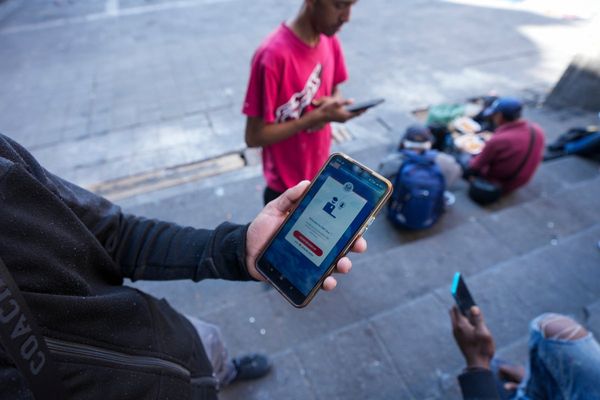
Pressure is mounting on the banking bosses at the centre of the Nigel Farage row after NatWest was forced to apologise to the former Ukip leader for “deeply inappropriate comments” made about him.
Dame Alison Rose, chief executive of NatWest Group, which owns Coutts, wrote to Mr Farage insisting that comments made in a dossier by Coutts “do not reflect the view of the bank”. It came after the arch-Brexiteer said his bank account was unfairly shut down because it did not agree with his political views.
Speculation is rising that Coutts CEO Peter Flavel may have to take responsibility for the fiasco as the ultimate decision over Mr Farage’s account rested with him.
Insiders say that Dame Alison was kept in the dark about what was going on and that Mr Flavel did not do enough to keep her fully updated.
Mr Flavel, a Harvard Business School alumni, joined Coutts as CEO in 2016 from JP Morgan.
Banking expert Sir Philip Augar said today that Dame Alison’s apology to Mr Farage may not be enough to save her job and draw a line under the controversy.
“It cannot end for NatWest and it may not end for Alison Rose in particular,” he told BBC Radio 4’s Today. “You cannot have a utilities type industry deciding who is free to give political opinions and who isn’t. It strikes at the core of democracy. It is like a water or electricity company saying ‘we won’t supply you because we don’t like your political views’.”
Asked if she should resign Sir Philip said: “It depends how much she knew [about the decision to ban Farage] and when.”
The bank had reportedly cited Mr Farage’s retweet of a joke by comedian Ricky Gervais about trans women and his friendship with tennis player Novak Djokovic, who is opposed to Covid vaccinations, to flag concerns that he is “xenophobic and racist”.
The dossier also repeated previous press reports, stemming from an old school friend, that a teenage Farage sang “gas ’em all, gas ’em all”, about Jewish people, as well as claims reported in the press from a former teacher that Mr Farage “once marched through a Sussex village singing Hitler Youth songs”.
In her apology, Dame Alison said that “legally held political and personal views” are no bar to having an account at the institution. She said she was commissioning a full review of the Coutts’ processes on bank account closures.
“I am writing to apologise for deeply inappropriate comments about yourself made in the now-published papers for the wealth committee. I would like to make it clear that they do not reflect the view of the bank,” she said in the letter.
Alison Rose, Natwest boss— (Getty Images)
“I believe very strongly that freedom of expression and access to banking are fundamental to our society and it is absolutely not our policy to exit a customer on the basis of legally held political and personal views.”
Mr Farage hit back at the bank boss, who is also a member of the PM’s new Business Council, and accused her of being forced into an apology by the Treasury. He said the apology was only “a start”, as he pledged to keep on campaigning.
“In life, it is always good to get an apology, so thank you Dame Alison for apologising. What I’ve actually been told quietly, privately, is that you were forced into doing this by the Treasury.
Peter Flavel, CEO of Coutts— (Alamy)
“But at least you’ve done it, I suppose. But the whole letter smacks of ‘not me, guv, I mean I’m just the chief executive, I mean, don’t blame me for what the banks under my direct control are doing’”.
He added: “I’m afraid I can’t just walk away from this. I’ve started this, and I’ve got to continue. So thank you for the apology. It’s a start, but it’s no more than that.”
Mr Farage says he made a subject access request in order to obtain documents from Coutts’s reputational risk committee that set out the justification for the closure of his accounts.
On Thursday the Treasury announced it will tighten rules on when and how a person’s account can be closed, in an effort to protect “freedom of expression”.
Under new regulations, banks will have to spell out why they are terminating an account, and give customers a notice period of 90 days. The change aims to give account holders more time to challenge decisions with the financial ombudsman.
The apology comes after pressure from senior Conservative politicians over the decision. Rishi Sunak’s press secretary told reporters on Wednesday that it would be “incredibly concerning and wrong” if Mr Farage’s accounts had been closed because of his political opinions.
Coutts, an exclusive private bank, has come under pressure from senior Conservatives— (Getty)
Former Brexit secretary David Davis said the move amounted to “thinly veiled political discrimination” and called it a “vindictive, irresponsible and undemocratic action”. The Financial Conduct Authority has also said it will discuss the situation with NatWest, which owns the private bank.
The changes to the banking rules have been in the works since January, when the government issued a “call for evidence” in updating the payment services regulations.
UK news in pictures
Show all 50In that document, the Treasury cited previous decisions alleged to have been made by payment service PayPal to close accounts “due to the publicly held views of PayPal’s users and those associated with them”.
In a bizarre paragraph, officials explained that “the government does not support ‘cancel culture’”.
Andrew Griffith, the economic secretary to the Treasury, said: “Freedom of speech is a cornerstone of our democracy, and it must be respected by all institutions.
“Banks occupy a privileged place in society, and it is right that we fairly balance the rights of banks to act in their commercial interest with the right for everyone to express themselves freely.
“These changes will boost the rights of customers – providing real transparency, time to appeal, and making it a much fairer playing field.”










